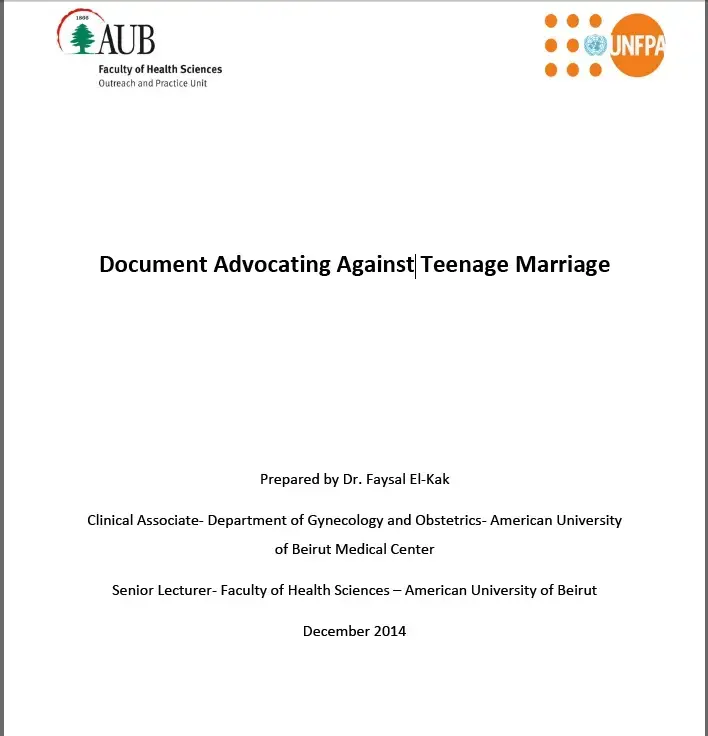The choice of partner and appropriate timing for marriage is one of the most important life decisions that an individual should make for his/her self. No
other person is entitled to make, control and/or influence this decision. Based on that belief, the choice to wed must be associated with the individual’s complete freedom and the absence of any element of coercion, hatred, fear or external pressure in the course of making this decision. It is acknowledged that in order for an individual to have the freedom and ability to consent they are required to be adults, 18 years of age or older. Most states agree on this principle, which is also reflected in International Human Rights Measures, precisely the Convention on the rights of the Child (CRC), the Convention on the Elimination of all forms of discrimination against Women (CEDAW), which banned child marriage, as well as the International Conference on Population and Development (ICPD), which called on all Member States in 1994 to work towards the elimination of child marriage and the enforcement of laws that guarantee the complete consent of minors.
Globally, 18 years is the legal age of marriage, yet many countries allow individuals younger than 18 to marry if parental and judicial authorities’ consent is provided. More than 30 States allow the marriage of those 15 years of age or younger if their parents’ approval was granted. Furthermore, a large number of countries allow the marriage of girls, under the same conditions mentioned above, at a younger age than those specified for boys, thus demonstrating that the early marriage phenomenon is influenced by gender.


